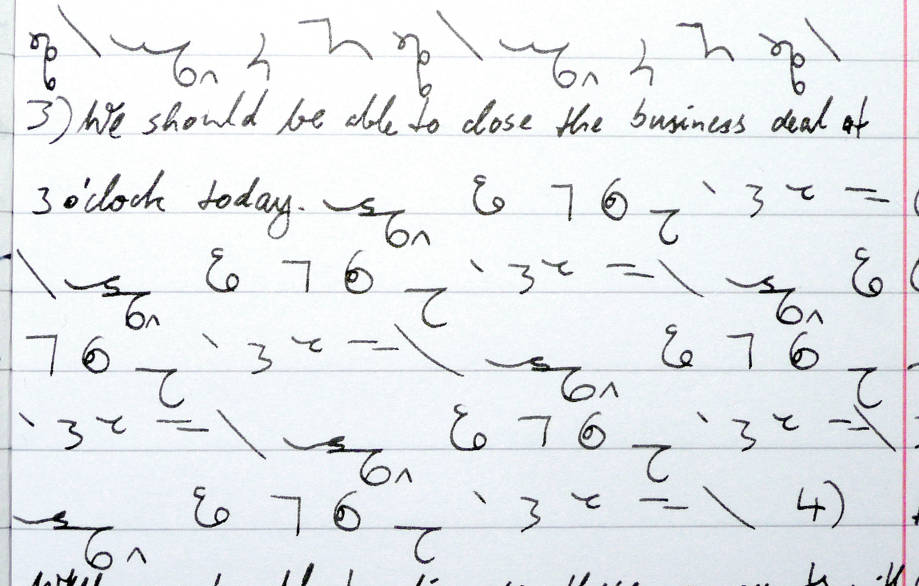I’m in the middle of unit 5 of the “Teeline Gold Course Book”, where the first “advanced” features of Teeline are introduced: word groupings. Common phrases like “I am”, “You will be”, but even “We should be able to” are written as a single outline. (To be exact, phrases with “… be able to” are written in two parts: word grouping and a full vowel a close to it.)

After the previous units, I was able to write anything in principle, but word groupings will condense the text. I’m interested to find out how hard it is to read back these outlines and to not confuse them with a single, strange word.
While learning and writing Teeline, I often note differences to the system I learned first, German „Stiefo“. That introduces word groupings only at the very end of its Advanced Level. Before that, compactness and speed are increased by special outlines for common words, prefixes and suffixes, and by rigorously stripping away flection endings to the bare minimum. Prefixes and suffixes are introduced later in my Teeline, after word groupings.

I have the feeling German is not as suitable as English for contracting phrases into an outline – pronouns, verbs etc. are distributed all over the sentence and sometimes change places at the slightest whim. For example, the sentence from my exercises “We should be able to close the business deal at 3 o’clock today.” (word grouping emphasised) would be translated as „Wir sollten das Geschäft um 3 Uhr abschließen können.“ – the common words „wir sollten können“ are split by the bulk of the sentence. If you would rearrange it to say “Today at 3 o’clock, we should be able to close the business deal.“, the German translation would be „Heute um 3 Uhr sollten wir das Geschäft abschließen können.“ – now „wir“ and „sollten“ have changed places. So you would need several grouping outlines where in English one would be enough. Quite possibly, you are better off with short forms for the single words.